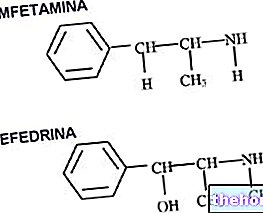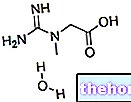What is Calcium Carbonate
Calcium carbonate is a well-known dietary supplement containing 40% of calcium, a precious bone-friendly mineral; it is also used as an antacid drug to relieve heartburn and acid juice regurgitation.
Still in the food supplements sector, calcium carbonate is used as an antiplatelet agent capable of giving compactness to the tablets.
Use as a calcium supplement
One of the main advantages of calcium carbonate is undoubtedly the particularly low cost, especially when compared to other calcium salts.

Use as an antacid
CaCO3 + 2HCl -> CaCl2 + H2O + CO2. As underlined by this formula, after ingestion, calcium carbonate rapidly acts as an antacid, reacting with hydrochloric acid and releasing carbon dioxide. However, the gas released ends up stretching the gastric walls, triggering a reflex mechanism that - mediated by gastrin - increases the release of gastric juices (a bit like a dog biting its tail).
In pharmaceutical preparations with antacid action, calcium carbonate is sometimes associated with dimethicone, which acts as a carminative by reducing the size of the CO2 bubbles that form in the stomach, thus attenuating the phenomena of flatulence and belching.
Side effects
Vomiting, nausea, regurgitation, constipation, dry mouth, increased thirst and urination, loss of appetite and metallic aftertaste. When used as an antacid, the joint intake of magnesium hydrate solves the constipation problem associated with the use of the calcium carbonate.
In large doses, taken together with large quantities of milk, calcium carbonate becomes responsible for the so-called milk-alkali syndrome, characterized by hypercalcemia, metabolic alkalosis and hypophosphataemia.
Rarely, calcium carbonate ingestion can cause allergic reactions, with rapid onset of breathing difficulties, hives, swelling of the face, lips or throat.
Precautions for use
Spontaneous use of any supplement or over-the-counter drug should always obtain prior medical consent; the use of calcium carbonate, for example, can interfere with other pharmacological therapies in progress. For this reason, the doctor and pharmacist must be informed in advance about any supplement or drug taken at the same time, especially if it is digoxin, antacids, other calcium or vitamin D supplements, or tetracycline antibiotics (tetracycline, demeclocycline, doxycycline, minocycline or oxytetracycline). The doctor will also be informed in advance about any predisposition to kidney stones and about the presence of gastric, renal or parathyroid diseases.
It is advisable to take calcium carbonate at least a couple of hours after other drugs, which could reduce their effect.
Do not exceed the recommended intake doses; if you forget, take the missed dose as soon as possible, unless it is too close to the next one (never take a double dose to make up for the previous one).
Doses of intake
Remembering the importance of full compliance with medical indications regarding duration, dosages and methods of use, we report the doses normally indicated:
300 - 8000 mg / day orally, divided into 2-4 daily intakes.
* As mentioned, the biggest limit to the use of calcium carbonate as an antacid, like sodium bicarbonate, is reflex gastric hypersecretion.
** Remember that each gram of calcium carbonate contains 400 mg of elemental calcium. The term "calcium carbonate 2500 mg" is therefore equivalent to "calcium (carbonate) 1000 mg". The table refers to the grams of calcium carbonate (therefore full wording without brackets) and not to those of elemental calcium (wording with the adjective "carbonate" placed in brackets).




























